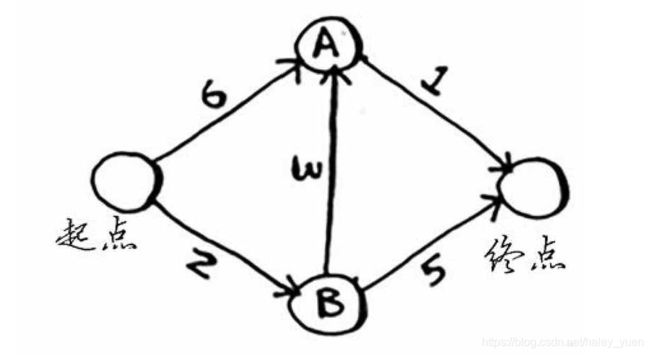- 如何用 Python 绕过 cloudflare(5秒盾) 抓取数据:也不是很难嘛!
炒青椒不放辣
Web爬虫进阶实战pythoncloudflare爬虫5秒盾逆向
大家好!我是爱摸鱼的小鸿,关注我,收看每期的编程干货。逆向是爬虫工程师进阶必备技能,当我们遇到一个问题时可能会有多种解决途径,而如何做出最高效的抉择又需要经验的积累。本期文章将以实战的方式,带你全面了解cloudflare(5秒盾)以及如何绕过使用cloudflare服务的网站从而抓取数据特别声明:本篇文章仅供学习与研究使用,不用做任何非法用途,相关URL和API等均已做脱敏处理,若有侵权请联系作
- python请求有关ja3指纹问题
王太歌
python爬虫开发语言
遇见一个网站采集,无论怎样都返回空数据(实际上是有数据的),但是抓包下来又确实是那样的,请教了一些人推测是指纹验证,拜读了网上其他大佬的博客文章后实验了一下,发现确实是这个问题!第一次知道tcp还有这个东西,让我大受震撼,值此搬运一下。参考链接及来源:Python爬虫进阶必备|JA3指纹在爬虫中的应用与定向突破python爬虫requests、httpx、aiohttp、scrapy突破ja3指纹
- 【干货】pythonJA3指纹绕过
kisloy
爬虫逆向python爬虫
requests/scrapyJA3指纹绕过requests绕过importrequestsimportrandomfromrequests.adaptersimportHTTPAdapterfromrequests.packages.urllib3.util.ssl_importcreate_urllib3_contextORIGIN_CIPHERS=("ECDH+AESGCM:DH+AESGC
- 豆瓣电影信息爬虫【2024年6月】教程,赋完整代码
桃宝护卫队
爬虫python
豆瓣电影信息爬虫【2024年6月】教程,赋完整代码在本教程中,我们将使用以下技术栈来构建一个爬虫,用于爬取豆瓣电影列表页面的信息:完整代码放到最后;完整代码放到最后;完整代码放到最后;重要的事情说三遍。1.技术栈介绍在本教程中,我们将使用以下技术栈来构建一个爬虫,用于爬取豆瓣电影列表页面的信息:Python:一种广泛使用的高级编程语言,因其简洁的语法和强大的库支持而受到开发者的喜爱。Request
- Floyd最短路算法
自由的dream
算法详解算法
Floyd算法是什么?Floyd算法(弗洛伊德算法)是一种求最短路的方法,别急着叫难,实际上这一个算法非常简单,虽然它用的是DP思想。好了,现在开始介绍它的原理。Floyd的原理啊说到Floyd算法,那么得讲讲最短路,最短路,是指从一个图中一个点到别的点的最短路径,有人就会问:“哎,这个图有距离吗?”问这种问题的人就是不懂图的人,一条边的权值,就是这一条边的长度,根据出发点划分,最短路可以分成单源
- 爬虫技术Requests实现模拟登录
incidite
爬虫
一、模拟登录的目的访问受限内容:获取需要登录才能查看的页面数据个性化数据采集:获取用户账户相关的定制化信息自动化操作:实现自动签到、自动任务等流程数据完整性:采集完整的用户视角数据(如社交网络信息)状态保持:维持会话状态以进行连续操作测试验证:用于网站功能测试和验证二、对Requests模拟登录的认识技术本质:通过PythonRequests库模拟浏览器登录行为实现原理:处理登录表单提交维护会话c
- 人工神经网络的拓扑结构,神经网络的神经元结构
快乐的小蓝猫
神经网络深度学习人工智能rnn
bp神经网络BP(BackPropagation)网络是1986年由Rumelhart和McCelland为首的科学家小组提出,是一种按误差逆传播算法训练的多层前馈网络,是目前应用最广泛的神经网络模型之一。BP网络能学习和存贮大量的输入-输出模式映射关系,而无需事前揭示描述这种映射关系的数学方程。它的学习规则是使用最速下降法,通过反向传播来不断调整网络的权值和阈值,使网络的误差平方和最小。BP神经
- 动态规划入门(LIS模板)
动态规划是一种通过把原问题分解为相对简单的子问题的方式求解复杂问题的方法能用动态规划解决的问题,需要满足三个条件:最优子结构,无后效性和子问题重叠目录最长上升子序列(LIS)基本思路最长上升子序列贪心优化(二分优化)合唱队形参加算法竞赛!最长上升子序列(LIS)基本思路在做这种类型的题目时我们需要注意明确题目要求的状态一般来说题目问什么,我们的dp[]数组就可以用来表示什么状态之间的转移变换当下状
- 3.17 补题(字符串,模拟)
ZZZS0516
算法c++
目录E-书法(字符串操作,移动指针)题目描述思路分析代码实现G-女神节的魔法花园(思维)题目描述思路分析代码实现H-KNN算法(模拟,排序)题目描述思路分析代码实现E-书法(字符串操作,移动指针)链接:书法来源:2025常熟理工学院天梯选拔赛题目描述在计算机上打字就是赛博书法,键盘如同笔,输入框就像纸,在键盘上输入一个个指令,就可以在输入框中写下自己想写的文字。现在你需要体验一次计算机的生活,目前
- Deepoc大模型重构核工业智能基座:混合增强架构与安全增强决策技术
Deepoch
人工智能创业创新科技自动化学习
面向复杂系统的高可靠AI赋能体系构建Deepoc大模型通过多维度技术突破,显著提升核工业知识处理与决策可靠性。经核能行业验证,其生成内容可验证性提升68%,关键参数失真率99.999%)。动态可信度评估系统:基于贝叶斯神经网络实时量化模型不确定性,为关键决策提供置信度评分(如堆芯功率控制置信区间±0.05%)。二、核心突破:物理增强型智能算法创新机理与数据双驱动建模神经微分方程求解器:将中子输运方
- 从 C# 到 Python:项目实战第五天的飞跃
AI、少年郎
数据库c#开发语言
在前面三天的学习中,我们已经掌握了Python的基础语法、数据结构以及一些核心库的使用。今天,我们将通过三个实战项目,深入对比C#和Python在命令行工具开发、Web应用开发以及数据处理方面的差异,感受Python在实际项目中的强大魅力。一、命令行工具开发:文件批量处理命令行工具是开发者日常工作中经常用到的工具,无论是文件处理、数据转换还是系统管理,都离不开命令行工具的身影。下面我们就来对比一下
- 章节十四:乱序中的“指挥家”:堆排序奥义 - (堆排序 / Heap Sort)
杨小扩
常用算法详解算法
各位老铁,阿扩又来啦!前面我们聊了各种数据结构和算法,从基础的排序查找,到复杂的图算法、动态规划,再到巧妙的Trie树和布隆过滤器。今天,我们要再次回到排序算法的舞台,但这次的主角,可不是简单的“冒泡”或“选择”,而是一位在乱序中能高效组织、精准定位的“指挥家”——堆排序(HeapSort)!你可能听说过快速排序、归并排序,它们都是O(NlogN)级别的排序算法。堆排序也同样拥有这个优秀的性能,而
- 万界星空科技锂电池MES解决方案
万界星空科技的锂电池MES(制造执行系统)解决方案专注于提升锂电池生产过程的智能化、自动化和精细化管理水平,针对行业的高复杂性和严格的质量追溯需求,提供了一套全面的功能模块和定制化服务。以下是其核心内容及优势:一、核心功能模块1.生产调度与计划管理•根据订单需求、产能状况和物料供应,自动生成动态生产计划,支持基于优先级或资源的排程算法,实时调整以应对变化,确保高效执行。•集成APS(高级计划排程系
- python docker
阿狸的家
SDNdocker
我们的开发人员和布署人员经常因环境问题,而使得安装过程困难重重,相比于虚拟机较少硬件资源的虚拟化,同时不需要加载虚拟机操作系统的耗时,因为docker共享宿主机的操作系统Centos和Ubunta共用内核kernel即bootfs相同,但是加载内核的rootfs不同,即文件的结构目录不同docker三要素docker可以看作为一个小型的linux系统,部署时秒级启动镜像:模板(应用程序代码),一个
- 。。。。看毛片算法_(:з」∠)_ /FZU - 2275
StrongerIrene
#日常刷题
参考1:链接“这个是我当时学的时候学长推荐我看的”(然而太长了。。。。。我看不懂……最后好难受_(:з」∠)_饭也不要吃的)然后看了精简版的...然后就明白了_(:з」∠)_【有关解释】(part)(1)模式串向右移动的位数为:失配字符所在位置-失配字符对应的next值next数组各值的含义:代表当前字符之前的字符串中,有多大长度的相同前缀后缀。此也意味着在某个字符失配时,该字符对应的next值会
- python实现自动化sql布尔盲注(二分查找)
海星船长丶
python自动化sql网络安全web安全
为了优化自动化布尔盲注的代码,我们可以使用二分查找来减少猜测次数,从而提高效率。以靶场sqli为例:importrequests#目标URLurl="http://127.0.0.1/sqli/Less-8/index.php"#要推断的数据库信息(例如:数据库名)database_name=""#字符集(可以根据需要扩展)charset="abcdefghijklmnopqrstuvwxyzAB
- rpg_trajectory_evaluation工具评估SLAM/VIO系统
rpg_trajectory_evaluation工具评估SLAM/VIO系统1、安装系统环境:ubuntu18.04+ROSmelodic代码:https://github.com/uzh-rpg/rpg_trajectory_evaluationtutorial:http://rpg.ifi.uzh.ch/docs/IROS18_Zhang.pdf1.1首先安装依赖的python库pipins
- 做人脸识别遇到的问题
princesshu
pythonpycharm
最开始安装的时候直接用pipinstalldlib却一直显示错误提示“Failedbuildingwheelfordlib”之后去网上搜来了各种下载链接依然错误我发现问题是!!python版本问题,我下载所有的包都与我的python版本不匹配于是我先安装了cmakeboost之后最后直接在终端安好了dlib~
- 【Hugging Face全面拥抱LangChain:全新官方合作包】
文末有福利!❝最近HuggingFace官宣发布langchain_huggingface,这是一个由HuggingFace和LangChain共同维护的LangChain合作伙伴包。这个新的Python包旨在将HuggingFace最新功能引入LangChain并保持同步。通过HuggingFace官方包的加持,开发小伙伴们通过简单的api调用就能在langchain中轻松使用HuggingFa
- 【技术工具】python人员照片简介批量对照(千人级)
Allen_Lyb
医疗高效编程研发python开发语言自然语言处理健康医疗语言模型
要实现根据照片上的工号批量添加人员姓名和工号到照片上,可以按照以下步骤操作(使用Python+PIL/Pillow+OpenCV+pytesseract):解决方案步骤准备数据创建人员信息表(CSV格式):姓名,工号确保所有照片文件名包含工号(如工号.jpg),或照片中有清晰可见的工号文本安装依赖库pipinstallpillowopencv-pythonpandaspytesseract#额外安
- Linux机器上Selenium+Python3+Chrome使用driver.get()只能获取到标签而没有内容的解决方法
代码:#!/usr/bin/python3#coding=utf8fromseleniumimportwebdriverfromselenium.webdriver.chrome.optionsimportOptionschrome_options=Options()chrome_options.add_argument('--headless')chrome_options.add_argume
- 解决 python 中的 huggingface_hub
code_welike
python前端数据库
解决python中的huggingface_hub.utils._validators.HFValidationErrorRepoidmustbeintheformrepo_nameorname问题在使用python的huggingface_hub库时,有时候会遇到类似于“huggingface_hub.utils._validators.HFValidationErrorRepoidmustbe
- 使用Python调用Hugging Face Question Answering (问答)模型
墨如夜色
pythoneasyui开发语言Python
使用Python调用HuggingFaceQuestionAnswering(问答)模型在自然语言处理领域,问答系统是一种能够回答用户提出的问题的智能系统。HuggingFace是一个知名的开源软件库,提供了许多强大的自然语言处理工具和模型。其中,HuggingFace的QuestionAnswering模型可以帮助我们构建问答系统,使得我们能够从给定的文本中提取答案。本文将介绍如何使用Pytho
- 深入解析与实战应用:利用Python和Amazon Product Advertising API实战分析
不进则退i
python开发语言
在电商平台的运营中,关键词搜索接口是不可或缺的一部分,特别是在亚马逊这样的全球电商平台。通过关键词搜索接口,商家可以高效地获取商品信息,优化选品策略,提升销售业绩。本文将详细介绍如何接入亚马逊的关键字搜索接口,并提供一个Python代码示例。点击获取key和secret1.注册开发者账号并获取API权限首先,你需要访问亚马逊开发者中心,注册一个开发者账号,并获取相应的API权限。在注册过程中,你将
- Python爬虫【四十七章】异步爬虫与K8S弹性伸缩:构建百万级并发数据采集引擎
程序员_CLUB
Python入门到进阶kubernetespython爬虫
目录一、背景与行业痛点二、核心技术架构解析2.1异步爬虫引擎设计2.2K8S弹性伸缩架构三、生产环境实践数据3.1性能基准测试3.2成本优化效果四、高级优化技巧4.1协程级熔断降级4.2预测式扩容五、总结Python爬虫相关文章(推荐)一、背景与行业痛点在数字经济时代,企业每天需要处理TB级结构化数据。某头部金融风控平台曾面临以下挑战:数据时效性:需实时采集10万+新闻源,传统爬虫系统延迟超12小
- Python爬虫【四十五章】爬虫攻防战:异步并发+AI反爬识别的技术解密
程序员_CLUB
Python入门到进阶python爬虫人工智能
目录引言:当爬虫工程师遇上AI反爬官一、异步并发基础设施层1.1混合调度框架设计1.2智能连接池管理二、机器学习反爬识别层2.1特征工程体系2.2轻量级在线推理三、智能决策系统3.1动态策略引擎3.2实时对抗案例四、性能优化实战4.1全链路压测数据4.2典型故障处理案例五、总结:构建智能化的爬虫生态系统Python爬虫相关文章(推荐)引言:当爬虫工程师遇上AI反爬官在大数据采集领域,我们正经历着技
- Python处理MySQL大数据量:分页查询与性能优化
AI天才研究院
AI人工智能与大数据pythonmysql性能优化ai
Python处理MySQL大数据量:分页查询与性能优化关键词:Python分页查询、MySQL性能优化、大数据量处理、LIMITOFFSET、索引优化摘要:当数据库表数据量达到百万级时,传统的LIMITOFFSET分页查询会出现明显性能瓶颈。本文从实际场景出发,用“图书馆找书”的通俗比喻拆解分页原理,结合Python代码示例和MySQL执行计划分析,详细讲解传统分页的痛点、优化思路(索引分页/覆盖
- 客流分析核心算法 trajectory_event_analyzer数据结构
风吹落叶花飘荡
python后端算法数据结构网络
客流分析核心算法trajectory_event_analyzerV4.py数据结构文章目录客流分析核心算法trajectory_event_analyzerV4.py数据结构一、算法描述1、描述2、客流分析模块trajectory_event_analyzerV4.py解析1.分层统计:2.状态一致性检查:3.区域状态统计:4、客流状态统计5.ReID集成:6.数据清理机制:二、核心模块解释1、
- 大学专业科普 | 计算智能、信息学与大数据
鸭鸭鸭进京赶烤
大数据
一、专业背景随着信息技术的飞速发展,数据的产生速度呈爆炸式增长,传统数据处理技术已经无法满足如此庞大的数据量和复杂的数据类型,大数据专业应运而生,旨在培养能够应对大数据挑战的专业人才。二、主要课程内容数学基础课程高等数学、概率论与数理统计、线性代数是大数据分析的核心数学基础,为数据处理、算法优化和模型构建提供必要的理论支持。计算机基础课程数据结构与算法、计算机网络、操作系统是大数据技术的重要支撑,
- 大学专业科普 | 人工智能、物联网和云计算技术
鸭鸭鸭进京赶烤
人工智能物联网云计算5G信号处理信息与通信网络
一、专业概述人工智能专业是一门融合计算机科学、数学、信息学等多学科知识的交叉学科。它旨在培养学生掌握人工智能领域的基本理论、方法和技能,以应对人工智能在各个领域的应用需求和发展挑战。二、主要课程基础课程:包括高等数学、线性代数、概率论与数理统计、离散数学等数学基础课程,为人工智能算法提供理论支撑;以及数据结构、算法设计与分析、计算机组成原理、操作系统、计算机网络等计算机科学基础课程,帮助学生理解人
- js动画html标签(持续更新中)
843977358
htmljs动画mediaopacity
1.jQuery 效果 - animate() 方法 改变 "div" 元素的高度: $(".btn1").click(function(){ $("#box").animate({height:"300px
- springMVC学习笔记
caoyong
springMVC
1、搭建开发环境
a>、添加jar文件,在ioc所需jar包的基础上添加spring-web.jar,spring-webmvc.jar
b>、在web.xml中配置前端控制器
<servlet>
&nbs
- POI中设置Excel单元格格式
107x
poistyle列宽合并单元格自动换行
引用:http://apps.hi.baidu.com/share/detail/17249059
POI中可能会用到一些需要设置EXCEL单元格格式的操作小结:
先获取工作薄对象:
HSSFWorkbook wb = new HSSFWorkbook();
HSSFSheet sheet = wb.createSheet();
HSSFCellStyle setBorder = wb.
- jquery 获取A href 触发js方法的this参数 无效的情况
一炮送你回车库
jquery
html如下:
<td class=\"bord-r-n bord-l-n c-333\">
<a class=\"table-icon edit\" onclick=\"editTrValues(this);\">修改</a>
</td>"
j
- md5
3213213333332132
MD5
import java.security.MessageDigest;
import java.security.NoSuchAlgorithmException;
public class MDFive {
public static void main(String[] args) {
String md5Str = "cq
- 完全卸载干净Oracle11g
sophia天雪
orale数据库卸载干净清理注册表
完全卸载干净Oracle11g
A、存在OUI卸载工具的情况下:
第一步:停用所有Oracle相关的已启动的服务;
第二步:找到OUI卸载工具:在“开始”菜单中找到“oracle_OraDb11g_home”文件夹中
&
- apache 的access.log 日志文件太大如何解决
darkranger
apache
CustomLog logs/access.log common 此写法导致日志数据一致自增变大。
直接注释上面的语法
#CustomLog logs/access.log common
增加:
CustomLog "|bin/rotatelogs.exe -l logs/access-%Y-%m-d.log
- Hadoop单机模式环境搭建关键步骤
aijuans
分布式
Hadoop环境需要sshd服务一直开启,故,在服务器上需要按照ssh服务,以Ubuntu Linux为例,按照ssh服务如下:
sudo apt-get install ssh
sudo apt-get install rsync
编辑HADOOP_HOME/conf/hadoop-env.sh文件,将JAVA_HOME设置为Java
- PL/SQL DEVELOPER 使用的一些技巧
atongyeye
javasql
1 记住密码
这是个有争议的功能,因为记住密码会给带来数据安全的问题。 但假如是开发用的库,密码甚至可以和用户名相同,每次输入密码实在没什么意义,可以考虑让PLSQL Developer记住密码。 位置:Tools菜单--Preferences--Oracle--Logon HIstory--Store with password
2 特殊Copy
在SQL Window
- PHP:在对象上动态添加一个新的方法
bardo
方法动态添加闭包
有关在一个对象上动态添加方法,如果你来自Ruby语言或您熟悉这门语言,你已经知道它是什么...... Ruby提供给你一种方式来获得一个instancied对象,并给这个对象添加一个额外的方法。
好!不说Ruby了,让我们来谈谈PHP
PHP未提供一个“标准的方式”做这样的事情,这也是没有核心的一部分...
但无论如何,它并没有说我们不能做这样
- ThreadLocal与线程安全
bijian1013
javajava多线程threadLocal
首先来看一下线程安全问题产生的两个前提条件:
1.数据共享,多个线程访问同样的数据。
2.共享数据是可变的,多个线程对访问的共享数据作出了修改。
实例:
定义一个共享数据:
public static int a = 0;
- Tomcat 架包冲突解决
征客丶
tomcatWeb
环境:
Tomcat 7.0.6
win7 x64
错误表象:【我的冲突的架包是:catalina.jar 与 tomcat-catalina-7.0.61.jar 冲突,不知道其他架包冲突时是不是也报这个错误】
严重: End event threw exception
java.lang.NoSuchMethodException: org.apache.catalina.dep
- 【Scala三】分析Spark源代码总结的Scala语法一
bit1129
scala
Scala语法 1. classOf运算符
Scala中的classOf[T]是一个class对象,等价于Java的T.class,比如classOf[TextInputFormat]等价于TextInputFormat.class
2. 方法默认值
defaultMinPartitions就是一个默认值,类似C++的方法默认值
- java 线程池管理机制
BlueSkator
java线程池管理机制
编辑
Add
Tools
jdk线程池
一、引言
第一:降低资源消耗。通过重复利用已创建的线程降低线程创建和销毁造成的消耗。第二:提高响应速度。当任务到达时,任务可以不需要等到线程创建就能立即执行。第三:提高线程的可管理性。线程是稀缺资源,如果无限制的创建,不仅会消耗系统资源,还会降低系统的稳定性,使用线程池可以进行统一的分配,调优和监控。
- 关于hql中使用本地sql函数的问题(问-答)
BreakingBad
HQL存储函数
转自于:http://www.iteye.com/problems/23775
问:
我在开发过程中,使用hql进行查询(mysql5)使用到了mysql自带的函数find_in_set()这个函数作为匹配字符串的来讲效率非常好,但是我直接把它写在hql语句里面(from ForumMemberInfo fm,ForumArea fa where find_in_set(fm.userId,f
- 读《研磨设计模式》-代码笔记-迭代器模式-Iterator
bylijinnan
java设计模式
声明: 本文只为方便我个人查阅和理解,详细的分析以及源代码请移步 原作者的博客http://chjavach.iteye.com/
import java.util.Arrays;
import java.util.List;
/**
* Iterator模式提供一种方法顺序访问一个聚合对象中各个元素,而又不暴露该对象内部表示
*
* 个人觉得,为了不暴露该
- 常用SQL
chenjunt3
oraclesqlC++cC#
--NC建库
CREATE TABLESPACE NNC_DATA01 DATAFILE 'E:\oracle\product\10.2.0\oradata\orcl\nnc_data01.dbf' SIZE 500M AUTOEXTEND ON NEXT 50M EXTENT MANAGEMENT LOCAL UNIFORM SIZE 256K ;
CREATE TABLESPA
- 数学是科学技术的语言
comsci
工作活动领域模型
从小学到大学都在学习数学,从小学开始了解数字的概念和背诵九九表到大学学习复变函数和离散数学,看起来好像掌握了这些数学知识,但是在工作中却很少真正用到这些知识,为什么?
最近在研究一种开源软件-CARROT2的源代码的时候,又一次感觉到数学在计算机技术中的不可动摇的基础作用,CARROT2是一种用于自动语言分类(聚类)的工具性软件,用JAVA语言编写,它
- Linux系统手动安装rzsz 软件包
daizj
linuxszrz
1、下载软件 rzsz-3.34.tar.gz。登录linux,用命令
wget http://freeware.sgi.com/source/rzsz/rzsz-3.48.tar.gz下载。
2、解压 tar zxvf rzsz-3.34.tar.gz
3、安装 cd rzsz-3.34 ; make posix 。注意:这个软件安装与常规的GNU软件不
- 读源码之:ArrayBlockingQueue
dieslrae
java
ArrayBlockingQueue是concurrent包提供的一个线程安全的队列,由一个数组来保存队列元素.通过
takeIndex和
putIndex来分别记录出队列和入队列的下标,以保证在出队列时
不进行元素移动.
//在出队列或者入队列的时候对takeIndex或者putIndex进行累加,如果已经到了数组末尾就又从0开始,保证数
- C语言学习九枚举的定义和应用
dcj3sjt126com
c
枚举的定义
# include <stdio.h>
enum WeekDay
{
MonDay, TuesDay, WednesDay, ThursDay, FriDay, SaturDay, SunDay
};
int main(void)
{
//int day; //day定义成int类型不合适
enum WeekDay day = Wedne
- Vagrant 三种网络配置详解
dcj3sjt126com
vagrant
Forwarded port
Private network
Public network
Vagrant 中一共有三种网络配置,下面我们将会详解三种网络配置各自优缺点。
端口映射(Forwarded port),顾名思义是指把宿主计算机的端口映射到虚拟机的某一个端口上,访问宿主计算机端口时,请求实际是被转发到虚拟机上指定端口的。Vagrantfile中设定语法为:
c
- 16.性能优化-完结
frank1234
性能优化
性能调优是一个宏大的工程,需要从宏观架构(比如拆分,冗余,读写分离,集群,缓存等), 软件设计(比如多线程并行化,选择合适的数据结构), 数据库设计层面(合理的表设计,汇总表,索引,分区,拆分,冗余等) 以及微观(软件的配置,SQL语句的编写,操作系统配置等)根据软件的应用场景做综合的考虑和权衡,并经验实际测试验证才能达到最优。
性能水很深, 笔者经验尚浅 ,赶脚也就了解了点皮毛而已,我觉得
- Word Search
hcx2013
search
Given a 2D board and a word, find if the word exists in the grid.
The word can be constructed from letters of sequentially adjacent cell, where "adjacent" cells are those horizontally or ve
- Spring4新特性——Web开发的增强
jinnianshilongnian
springspring mvcspring4
Spring4新特性——泛型限定式依赖注入
Spring4新特性——核心容器的其他改进
Spring4新特性——Web开发的增强
Spring4新特性——集成Bean Validation 1.1(JSR-349)到SpringMVC
Spring4新特性——Groovy Bean定义DSL
Spring4新特性——更好的Java泛型操作API
Spring4新
- CentOS安装配置tengine并设置开机启动
liuxingguome
centos
yum install gcc-c++
yum install pcre pcre-devel
yum install zlib zlib-devel
yum install openssl openssl-devel
Ubuntu上可以这样安装
sudo aptitude install libdmalloc-dev libcurl4-opens
- 第14章 工具函数(上)
onestopweb
函数
index.html
<!DOCTYPE html PUBLIC "-//W3C//DTD XHTML 1.0 Transitional//EN" "http://www.w3.org/TR/xhtml1/DTD/xhtml1-transitional.dtd">
<html xmlns="http://www.w3.org/
- Xelsius 2008 and SAP BW at a glance
blueoxygen
BOXelsius
Xelsius提供了丰富多样的数据连接方式,其中为SAP BW专属提供的是BICS。那么Xelsius的各种连接的优缺点比较以及Xelsius是如何直接连接到BEx Query的呢? 以下Wiki文章应该提供了全面的概览。
http://wiki.sdn.sap.com/wiki/display/BOBJ/Xcelsius+2008+and+SAP+NetWeaver+BW+Co
- oracle表空间相关
tongsh6
oracle
在oracle数据库中,一个用户对应一个表空间,当表空间不足时,可以采用增加表空间的数据文件容量,也可以增加数据文件,方法有如下几种:
1.给表空间增加数据文件
ALTER TABLESPACE "表空间的名字" ADD DATAFILE
'表空间的数据文件路径' SIZE 50M;
&nb
- .Net framework4.0安装失败
yangjuanjava
.netwindows
上午的.net framework 4.0,各种失败,查了好多答案,各种不靠谱,最后终于找到答案了
和Windows Update有关系,给目录名重命名一下再次安装,即安装成功了!
下载地址:http://www.microsoft.com/en-us/download/details.aspx?id=17113
方法:
1.运行cmd,输入net stop WuAuServ
2.点击开
